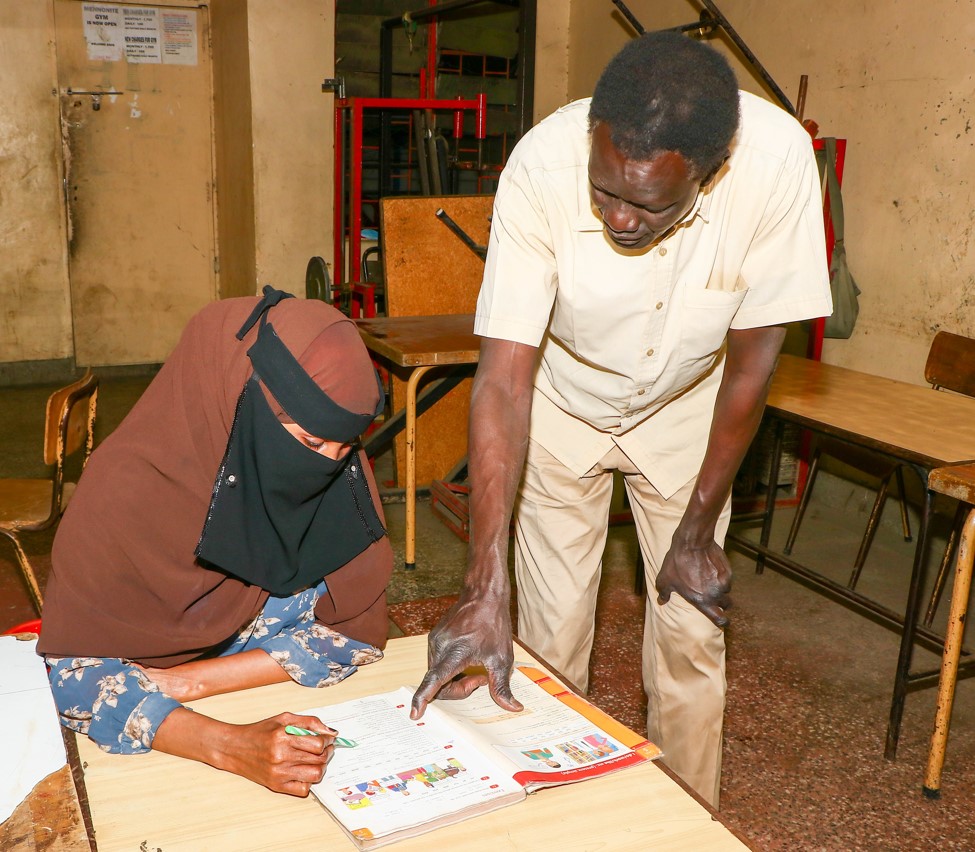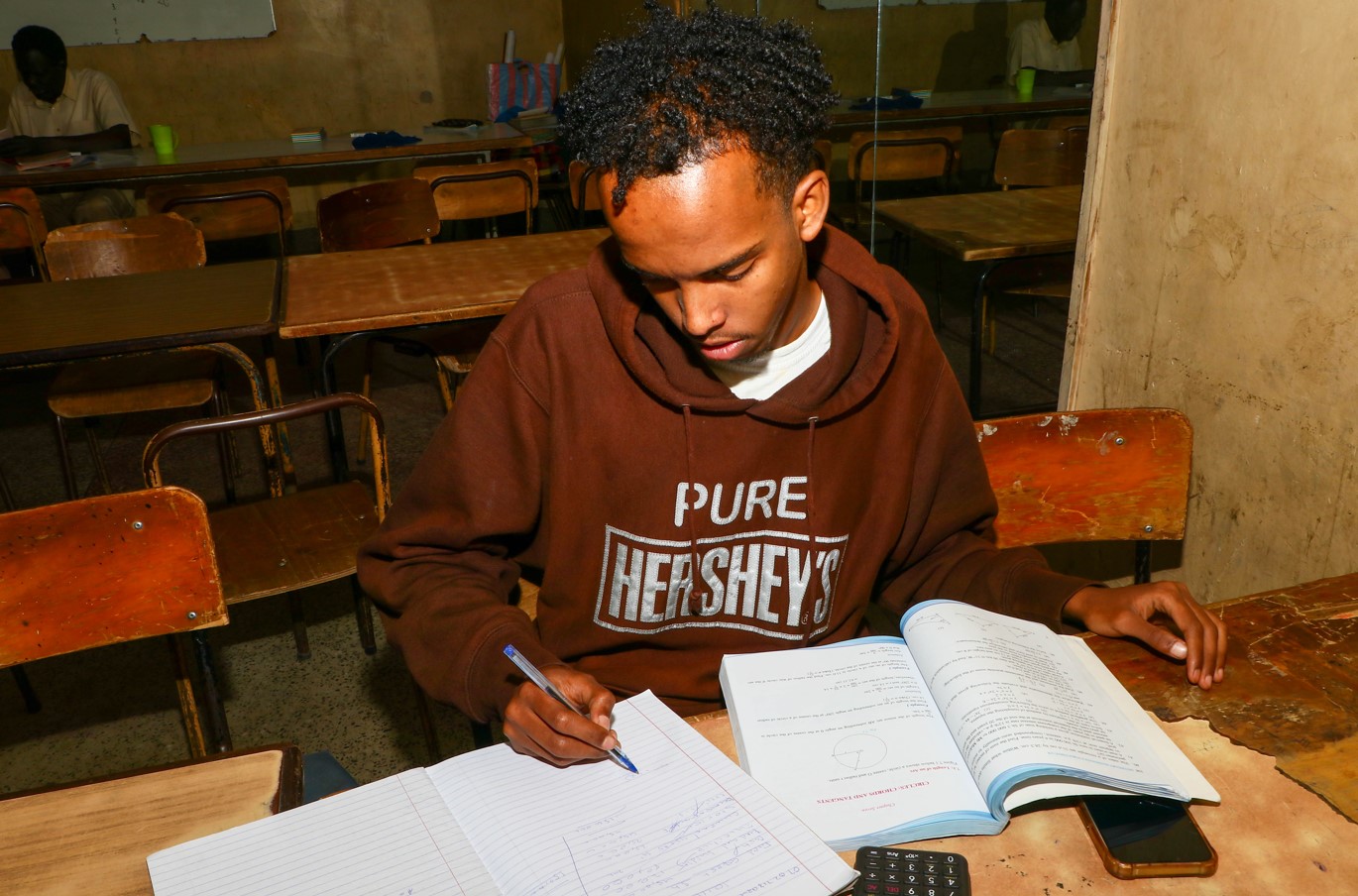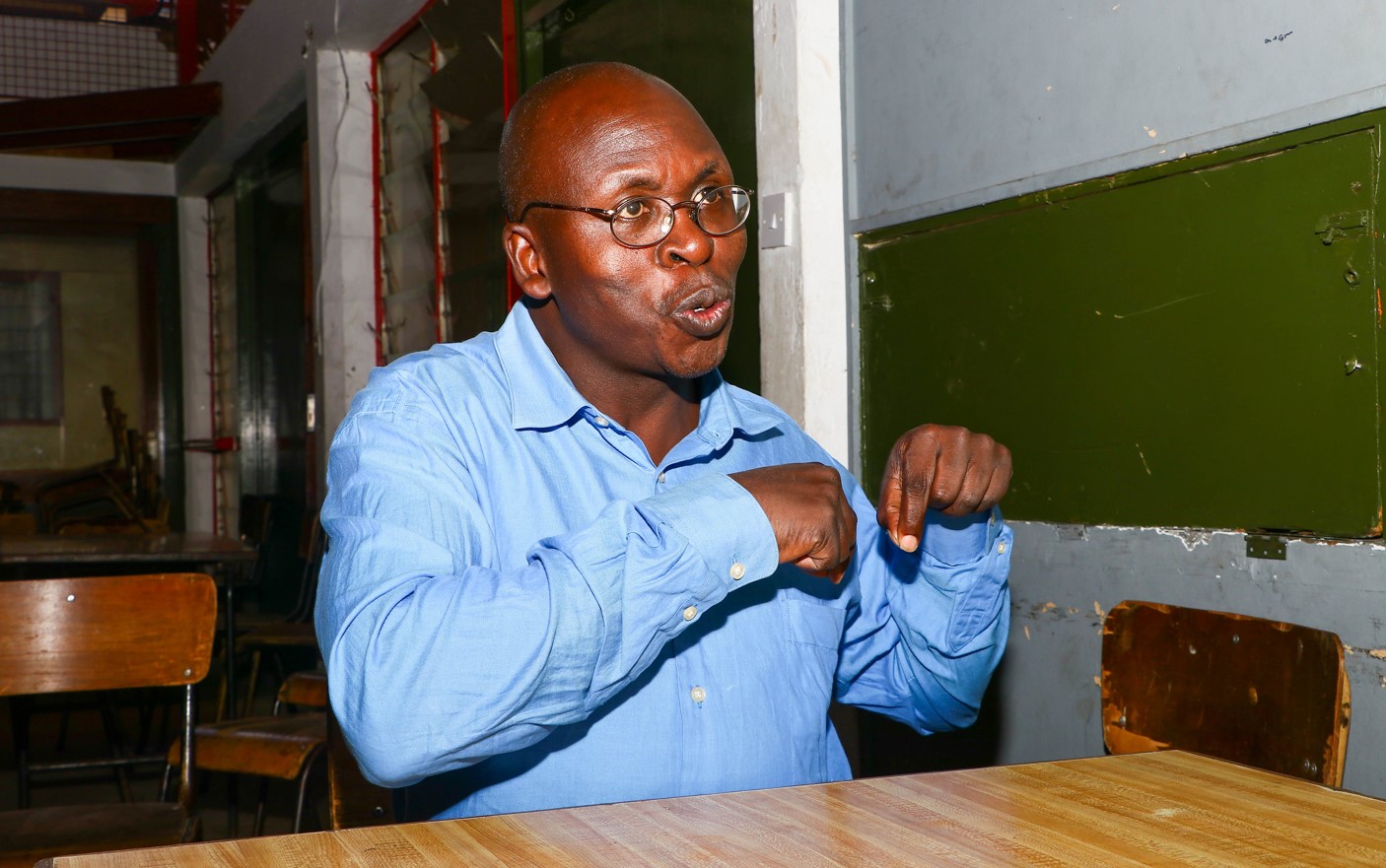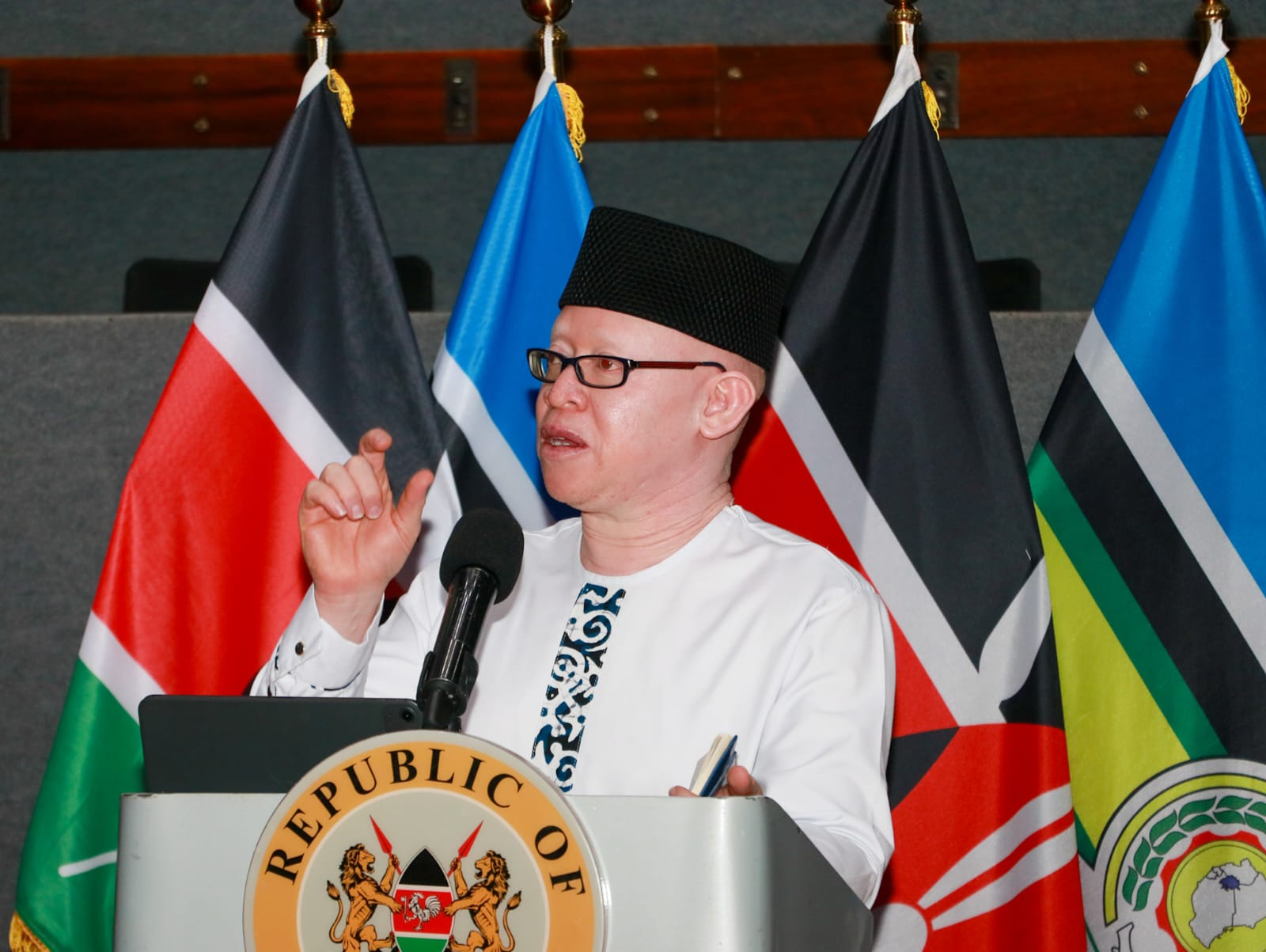Eastleigh centre where adults get second chance at education

By Lucy Mumbi |
Eastleigh Fellowship Centre, located on Eastleigh Eighth Street, was founded in 1980 and currently serves 50 students aged between 17 and 70.
Saida Salad, 24, sits intently in her class at Eastleigh Fellowship Centre, in an English lesson.
She reveals that she did not have the opportunity to study in Somalia, therefore she decided to travel to Kenya to pursue an education.
“My dream is to become a nurse so that I can go back to my region to help other people,” she says.
Her teacher, Deng Mikhaed, says Saida is at the beginning stage and should finish her English lessons in about three months.
Not far from Saida, 18-year-old Mohamed Abdulgani diligently prepares for his Kenya Certificate of Secondary Education (KCSE) national examinations, scheduled to begin this year in November.
Under the guidance of his teacher, Mohamed explains that due to his age, he couldn’t find an institution in Somalia that would provide him with an education. He therefore came to Kenya seeking educational opportunities and eventually found support at Eastleigh Fellowship Centre, where his teacher currently helps him revise for his exams.
“I didn't have the chance to study back home in Somalia. So, when I came to Kenya, I registered for exams at another institution. However, they couldn’t accommodate me due to my age. That's when I decided to join Eastleigh Fellowship Centre, where the teacher helped me revise all subjects necessary for the exams. During the exams, I’ll return to the institution where I registered and take my exams,” he says.
 Eighteen-year-old Mohamed Abdulgani during a maths class at the Eastleigh Fellowship Centre on July 8, 2024. (Photo: Justine Ondieki/EV)
Eighteen-year-old Mohamed Abdulgani during a maths class at the Eastleigh Fellowship Centre on July 8, 2024. (Photo: Justine Ondieki/EV)
His ambition is to become an accountant, a goal he is steadfastly working towards.
Eastleigh Fellowship Centre, located on Eastleigh Eighth Street, was founded in 1980 and currently serves 50 students aged between 17 and 70. The institute provides a lifeline to people who, like Saida and Mohamed, were denied formal education in their war-torn homelands or who were never able to attend school in their home countries.
The headteacher Joseph Kwomangola says students come from various regions, including Somalia, Ethiopia, Sudan, Uganda, and Tanzania.
“Our purpose is to empower adults who never had the chance to attend school, offer literacy programmes and educational opportunities. Many of our students come from refugee camps or densely populated local communities like Eastleigh,” he says.
“For instance, we have a library programme where we provide a space for university, secondary and primary school students to come and learn because our community is overpopulated and they don’t have a silent space or environment to study.”
The centre's curriculum has beginner-level, elementary, pre-advanced and advanced encompassing subjects ranging from mathematics to social sciences. Kwomangola noted that students pay an affordable fee of Sh1000 per subject for one month.
He adds that they provide a nurturing environment where people from different nations can interact, learn, and build friendships.
“It's more than just academics, it's about fostering a sense of community and empowerment,” he says.
 Joseph Kwomangola, headteacher of the Eastleigh Fellowship Centre. (Photo: Justine Ondieki/EV)
Joseph Kwomangola, headteacher of the Eastleigh Fellowship Centre. (Photo: Justine Ondieki/EV)
He, however, points out that the centre does not issue certificates to students upon completion of their studies because their curriculum does not align with the government's system.
“Due to the Competency-Based Curriculum (CBC), our focus is on practical skills that can help individuals find employment or enrol in higher institutions abroad,” he says.
Despite its valuable mission, the centre faces numerous challenges, including financial constraints that limit its ability to provide quality education to the community.
"If our institution had funds, we would improve services. Although we have attempted to secure funds and support, it remains a challenge," he says.
In addition, educating elderly individuals is difficult since they frequently miss classes, which impedes their progress.
“Sometimes you find a student who is supposed to take maybe two years to finish their studies ends up not finishing. They come for a period of like one month then they break. So, their development goes down because there isn’t that consistency,” he says.
He appeals to the government to design a system that takes into account individuals who did not attend school and does not only rely on CBC.
"If our system is only CBC, these people's dreams will be cut off. The designers of our educational system should consider those who missed school but would like to go back," he says.
Reader comments
Follow Us and Stay Connected!
We'd love for you to join our community and stay updated with our latest stories and updates. Follow us on our social media channels and be part of the conversation!
Let's stay connected and keep the dialogue going!





